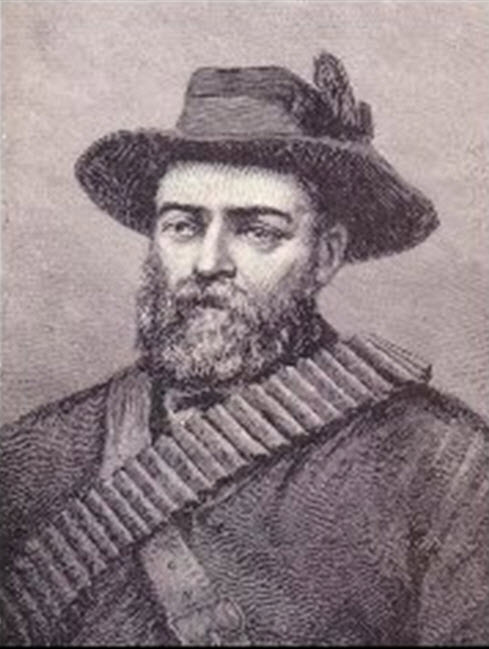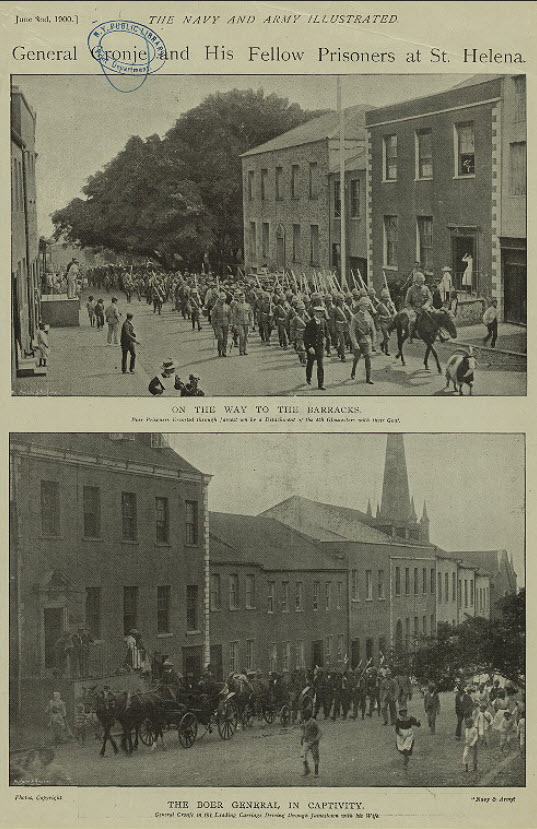
Piet Arnoldus Cronje (Colesberg, October 4, 1836 - Potchefstroom, February 4, 1911) was a Boer general during Second Boer Wars. During the Second Boer War he commanded the Boer commandos in the Transvaal.
Cronje was born in the British controlled Cape Colony, but while still a baby he was taken by his parents on the Great Trek, the mass exodus of Boers out of British territory and into the new territories to the north where they established the Orange Free State and the Transvaal Republic.
Despite some notable successes during the early part of the war, he was eventually defeated and the army under his command captured.
An ardent nationalist, he was one of the first to enlist when the First Boer War broke out , and fought with distinction. Later, he was in charge of the Boer forces which defeated the Jameson Raid, an attempt by British sympathizers to stage a coup and take over the Transvaal.
Upon the start of the Second Boer War, Cronje was in charge of the Boer commandos who besieged the cities of Ladysmith and Mafeking. Despite a 3 to 1 numerical advantage over the defenders, Cronje was unable to capture the cities and his efforts to maintain the siege tied down considerable Boer units.
He was however temporarily successful in preventing British forces from advancing to break the siege, and he scored some victories. His innovative tactics at the Battle of the Modder River, resulted in a British defeat. However, his forces were eventually pushed back and surrounded. After exhausting all of his supplies and ammunition, Cronje surrendered to the British with a force of almost 4,000 Boers on February 27, 1900.
The loss of such a sizeable field army demoralized the remaining Boer forces, and the British Imperial troops were able to enter Bloemfontein, the capital of the Orange Free State, without a fight.


Cronje and his wife (who had accompanied him on campaign) were deported and imprisoned on the Island of St. Helena, the same desolate place where the deposed Emperor Napoleon had spent his final days. Cronje was detained there until the end of hostilities, and was shunned by his fellow Boer prisoners, who blamed him for their defeat. Upon his release, Cronje met with the same icy reception at home and was excluded from Boer society.
Cronje and his wife then went into self-imposed exile and moved to the United States where he ended his days pathetically recreating battles from the Boer War as a stuntman in a Coney Island exhibition.